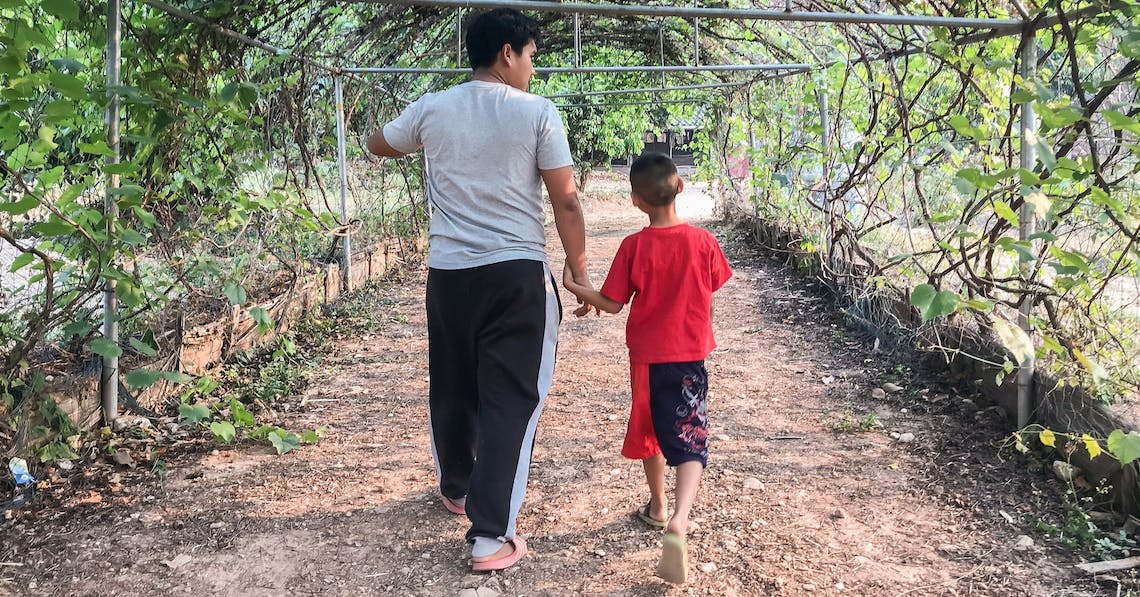Pramote Eua-Amnuay, Director and Founder of Leadership Home in Chiang Dao, sits opposite from me at a large wooden table. Next to him is his 25 year old son, Thakdanai, nicknamed Thak. I arrive at the home just after sunset, and stars now litter the sky. A 56 year old member of the Lahu tribe, Pramote has created this home to help the children of hill tribes in problematic areas of Northern Thailand. “You have to understand,” he says to me, sliding a hot cup of flower tea across the table, “these areas are very poor, families are often only concerned with what they will eat tomorrow. Most parents don’t believe in education.”
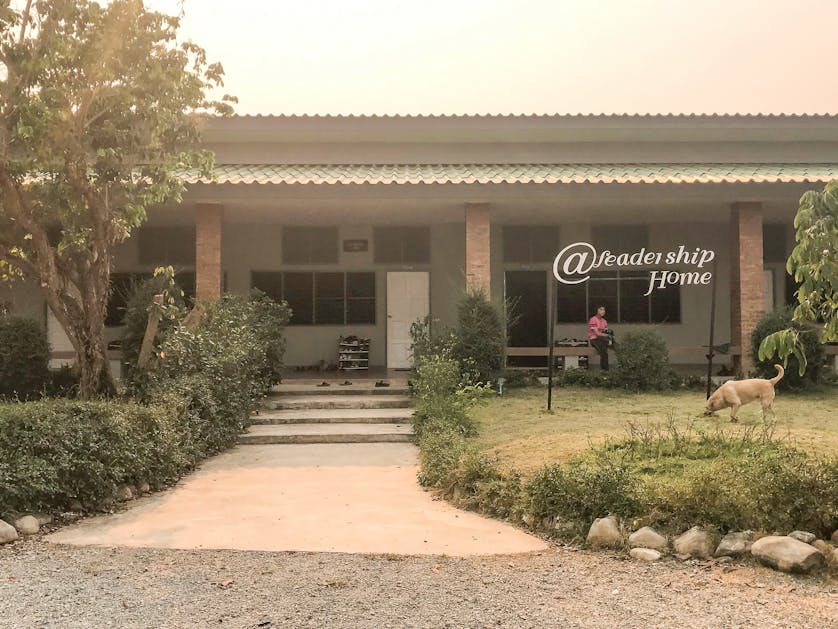
The local schools are often equally unhelpful. Corrupt school directors in Thailand are usually moved, rather than fired, and many end up in hill tribe schools where the hill tribe members do not have a loud enough voice to protest. Teachers placed in these schools notoriously leave early on Fridays and return late on Mondays due to their unhappiness with their situation. The kids have next to no support regarding their education.
Due to a lack of education, children marry quite young, generally around 14 or 15 years old, and have children of their own without considering the consequences. These kids realise the challenges of supporting a family after it’s too late, and are forced to look for work to support their households. Field work with their parents is a steady option, but more lucrative opportunities exist. Sex work and prostitution lure in girls with the chance to make significantly more money, while the boys are pulled into selling amphetamines in the villages. Many kids choose to drop out of school to pursue whatever money they can in these lines of work.
“Boys are shot and killed in drug-related crimes but no one cares, the boys often have no identification card,” Pramote sighs. As a result, young girls with children are left without the fathers and look to remarry. The new parent may not want the former parent’s kids, and often will abuse the children. A number of children are left without either parent. With Leadership Home, Pramote seeks to break this cycle.
Pramote’s inspiration for Leadership Home comes from his own upbringing. Being a member of the Lahu tribe, he knows how many barriers to success hill tribe people face. “Thai people generally view hill tribes as troublesome and bad,” Pramote says. “But the problem is systemic. Hill tribe people often go into sex and drug trades because there are no other options.”
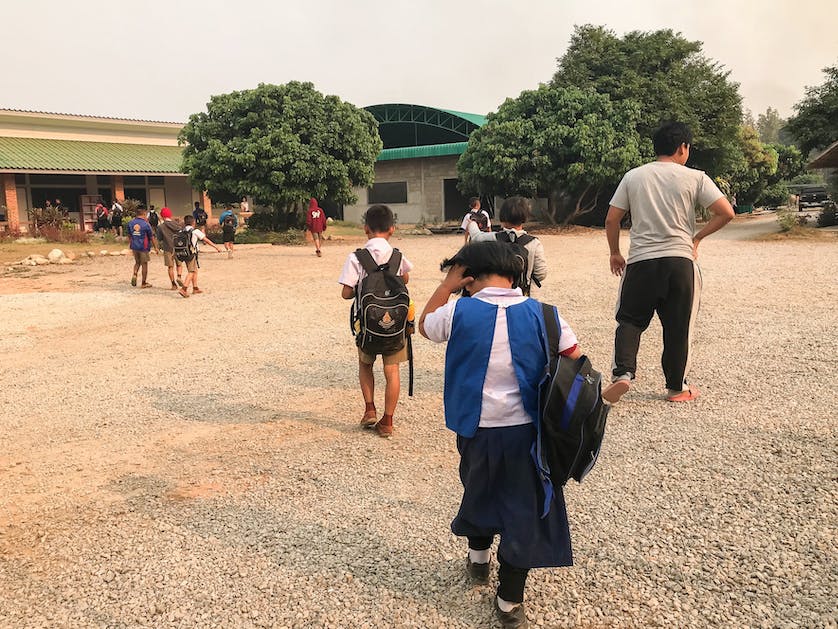
Pramote was fortunate enough to graduate with a degree in community development, and he started his career with the Heifer Foundation. The Heifer Foundation allowed him to work with communities in the North of Thailand, Myanmar and Laos, but he wasn’t totally satisfied with the work. “We worked with communities and parents, but I always wanted to focus on the kids. Impacting the kids impacts the future of the community,” he says.
In 2017, Pramote was finally able to start his dream project: Leadership Home. Village leaders from over 300 communities raised enough money for him to construct a single building that housed both boys and girls, as well as start a farm. Pramote chose this location due to its close proximity to the public schools of Chiang Dao, schools affected much less by corruption than the schools in the hills. After one year, Pramote connected with sponsors in Australia, whose donations helped build separate buildings for the boys and girls, and expanded to hold a total of 65 kids. Now, Pramote is planning his most ambitious expansion yet, with 70 more kids set to arrive at the home before school starts on May 15th. Still, Pramote wants to do more: “The waiting list has hundreds of children on it. We can only accept the emergency cases at the moment.”
The majority of the incoming kids will be under eight. Pramote notes they are easier to work with and teach that way, though a few will be older due to special circumstances. I ask if students were ever homesick upon arriving in this new environment. “Sometimes at first,” Thak responds, “but to many this is heaven. They eat a lot because they don’t have food at home.” “I used to grow up without food,” Pramote chimes in. “I understand. I know their feelings.” Leadership Home does not simply house and feed the children, however, it provides them with the tools to succeed for years to come.
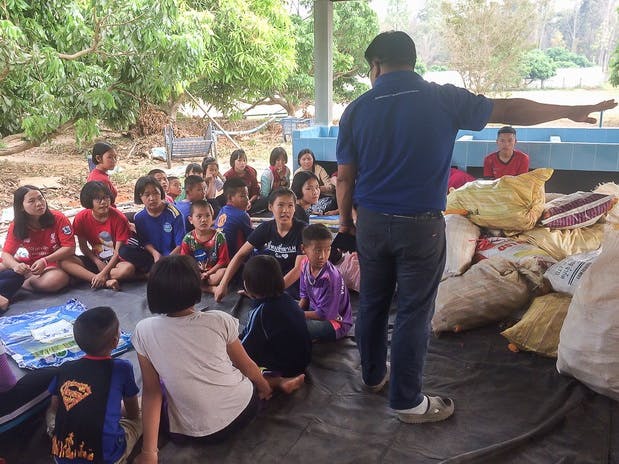
“This not a children’s home,” Pramote states emphatically. “This is a leadership home.”
The next day I saw exactly what he meant. Thak gave me a tour of the surrounding area in the morning, and we got back to the home just as the kids were returning from their day at the local, government-run school. They made for their rooms in excited chatter to change out of their uniforms. Before they could play, however, they headed to the farm on the far end of the grounds to complete their chores. I followed the kids with Thak, passing the football field and volleyball court, before reaching the rows of plants. The kids immediately set to work, some watering the plants, some digging trenches for new vegetables, and so on. A pig and chicken coup was located in the back right of the garden, and two young girls, both about 10 years old quickly prepared to feed them. One girl held a banana tree in place while the other took out a knife that was almost as big as she was and started slicing away.
Looking around, the farm seemed like a well-oiled machine. “When new kids arrive, they don’t know how to farm,” Thak explained, “so the older kids teach the younger ones. The farm is run entirely by the children.” The kids also decide amongst themselves which jobs they do. The younger kids, aged 5-8, watered the cabbages with a level of seriousness and dedication only the very young can truly muster. The high schoolers, 14-17, took a more lackadaisical approach to caring for the eggplants and pumpkins. One boy placed a bluetooth speaker on the well nearby and played music, while another juggled a soccer ball in-between two rows of eggplants. These boys and girls certainly found each other more interesting than the plants. Still, the job was done and done well, and without any need for adult supervision. I asked Thak if anyone ever looked after them and he shrugged off my question with a wry smile and the vague reply, “they get in trouble if the plants die.”
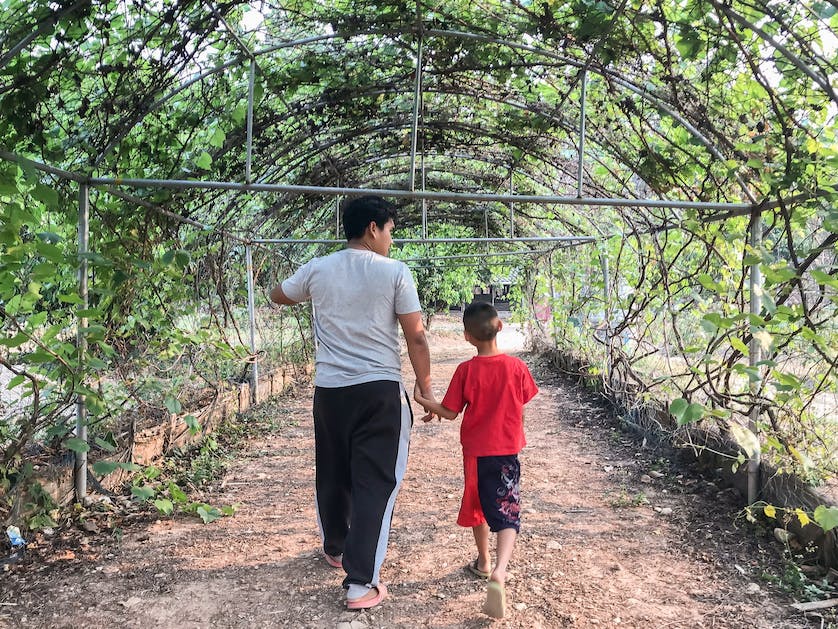
Thak’s response was good-natured, but he made it clear that the farm was essential to the home. “Sponsorship money is quite low,” he admitted. “The kids cannot survive without the farm.” In fact, save for the purchase of eggs and noodles, everything the kids eat comes directly from the farm. Thak showed me the pigsty as the girls carried a few buckets of pig slop towards one of the cages. “Pigs are a good investment,” Thak told me. “One pig can feed 70 kids for 2 months.” The pigs huddled around the trough as one of the girls poured slop into it, while the other calmly hopped the fence and cleaned the space behind the pigs. “You should have come last week,” Thak said, looking at me slyly. “We just killed a pig.” One of the pigs from the adjacent cage poked his nose out through the bars expecting food and oinked at me.
The sun disappeared behind the mountains, and the girls made dinner. The meal was simple: rice and soup, all made from the ingredients of the farm, such as pork, cabbage, mushrooms, eggplants. However, it tasted good, was certainly filling, and most importantly the kids could have as much as they wanted. The kids took turns doing the dishes.
After the meal, Pramote and eleven older kids, gathered outside around a large table for a meeting. Pramote started almost immediately, speaking rapidly in Thai. One girl went up to the whiteboard near the head of the table and began to write the numbers being thrown around. “Twelve new kids are coming tomorrow,” Thak whispered to me. “We need to figure out where they’ll stay, what uniforms they’ll need, and things like that.” Pramote facilitated the discussion, but left the details up to the kids, all of them around 16 or 17. “Learning how to organise your mind is very important,” he said to me as the kids recorded the numbers for uniforms.
The meeting wrapped up and the kids left, giving us privacy to talk. I expressed my admiration for his work. He beamed at me. “We aren’t simply providing them housing nearby better public schools,” he said excitedly, “we are providing them with our own school — a school for life! All of these skills they can take with them. They learn how to farm here, so they can feed themselves. They learn how to lead here, so they can impact their communities. We also bring in English teachers for English camps and lessons for them to improve. English not only improves their chances of finding a good job, it helps how they are perceived in school and by Thai people in general. Good English shows they aren’t lesser, but just as intelligent as Thai students.”
The model child Pramote envisions is exemplified by Coco, one of the two full time employees at the home (the rest, including Pramote and Thak, are technically volunteers). He won a scholarship from Pramote’s family in 2015, another one of their charities, and majored in public health at Phayao University with the dream of returning to assist poorer communities like the one he grew up in. At the home he manages the health of the kids, diagnoses illnesses, provides medicine, takes care of expenses, and helps with homework. “I do a little bit of everything,” he laughed. “Seeing the kids achieve their goals and graduate from school makes it worth it,” he went onto say. “It means we’ve succeeded.”
Though money is tight, Leadership Home has an exciting future ahead. Sponsors in Australia provide much needed money for the kids, though donations such as money, dry food and health products such as sanitary pads are always appreciated. In addition to donations, they have added a resort adjacent to the home for tourists to stay in while visiting Chiang Dao, a town that is seeing an increase in popularity for those looking for good hiking and a more natural and untouched option to the busier Pai. Thak also runs a coffee shop next to the home, with coffee bought from the parents of the hill tribe kids. The proceeds of both the resort and coffee shop go directly to Leadership Home.
Pramote hopes that this emphasis on leadership and education will change the current situation of the hill tribes. “Right now the problems are cyclical. In educating the youth, I hope to break this cycle,” Pramote stated. “I chose to build the home in this valley because there are 20,000 hill tribe members living here, and only four have received Bachelor’s degrees.” At the moment, one girl from Leadership Home has graduated and is now in Chiang Mai pursuing a degree. Her housing is also paid for by the foundation. Next year, another girl from Leadership Home will graduate and go to university in Chiang Mai. Ideally, each year more and more kids from Leadership Home will graduate high school and pursue degrees in the city. Pramote and Thak have connections with foundations that work with hill tribes, and hope to connect the eventual graduates with these foundations.
Progress may be slow, but this change is coming from the ground up. Already Pramote said he sees improvements. “We are famous among the hill tribes, you know,” he laughed. “Kids leave home never having washed the dishes, never having folded sheets, never having cleaned. When they visit their homes, they wash the dishes, they fold sheets. Everyone is talking about it!” Bigger change is still to come, but already in the present the kids from Leadership Home are, by example, leading.
For ways to support this great initiative, please visit BorderlessFriendship.org.
